- Home
- Rick Yancey
The Isle of Blood (Monstrumologist) Page 3
The Isle of Blood (Monstrumologist) Read online
Page 3
“I take it you found him well,” offered the doctor.
“Oh, he was the picture of soundness and good cheer! The same old Kearns. Invited me in for a spot of tea as if nothing were amiss, told me he had been distracted lately by a particularly troublesome case, a yeoman with the British Navy who was suffering from some mysterious tropical fever. Kearns seemed completely taken aback—though touched—by my concern for his welfare. When I brought up the matter of the rent, he expressed his mortification, blaming it on this case of his and assuring me I would have it, plus interest, by the end of the week. So soothed was I by his silver-tongued rationale, and also a bit embarrassed to intrude upon his important work, I actually apologized for coming to collect what was rightfully mine. Oh, he is the devil’s own progeny, this Dr. John Kearns!”
“He has a way with words,” the doctor allowed. “Among other things. Ah, but here is Will Henry with the tea.”
The monstrumologist was standing by the mantel when I entered, running a finger contemplatively up and down the nose of the bust of the ancient Greek philosopher Zeno. Our guest reclined on the divan, his lean face still flushed from his ordeal. He reached for his cup with a quivering hand.
“The tea,” he murmured. “It must have been the tea.”
“The medium for the poison?” asked the doctor.
“No! He injected that once I had come to my senses.”
“Ah, you mean he slipped you some sort of sleeping draft.”
“That must have been the case. There can be no other explanation. I thanked him for the tea—oh, how he must have relished my appreciation!—and was no more than two steps from the door when the room began to spin and all went black. When I awoke, many hours had passed—night had fully come on—and there he was beside me, smiling ghoulishly.
“‘’ve had a bit of a spell,’ he said.
“‘I fear so,’ said I. I felt utterly drained and entirely helpless, emptied of all vitality. Just turning my head to look at him required every ounce of strength in my body.
“‘Lucky for you it struck in the presence of a doctor!’ he observed with a perfectly straight face. ‘I thought something was the matter when I first saw you, Kendall. A bit green around the gills. Of course, you’ve probably been working too hard exploiting the poor and downtrodden, collecting rents on hovels a rat would be ashamed to call home—a case of slumlord exhaustion is my guess. I would suggest you consider a holiday in the countryside. Get some fresh air. The atmosphere of these neighborhoods is absolutely putrid, infused as it is with the funk of human suffering and despair. Take a trip. A change of scenery would work wonders.’
“I protested vehemently these offensive remarks. I am no slumlord, Dr. Warthrop. I provide a necessary service, and only once or twice have I put someone out for not paying the rent. So complete was my outrage, I would have struck him for these repugnant jibes upon my character, but I could not raise my hand even an inch from the bed.
“‘I am exceedingly glad you dropped by,’ he went on in that maddeningly chipper tone of his. ‘God himself must have sent you—God, or something very much like him. You see, I can’t trust it to the mails, and I can’t go myself—I must take my leave of this blessed isle tomorrow—and finding a reliable courier in this milieu has proved more difficult than I anticipated. You simply cannot rely upon anyone from the ghetto—but I don’t have to tell you that. And now here you are, Kendall! Delivered unto me like the best of presents—wholly satisfactory and completely unexpected. The answer to a prayer of a man who never prays! It is serendipitous to say the least, don’t you think?’”
Kendall paused, sipped his tea, and stared silently for a moment into space. He possessed the haunted look of a man who had barely escaped a brush with death’s angel, which, literally, he had.
“Well, I will confess I didn’t know what to think, Dr. Warthrop. What was I to think? In an instant and without warning, all my faculties had been stripped from me, and now I lay dizzy, my thoughts a blur, paralyzed upon his bed, with him leering down at me. What was a man to think?
“‘It is a small matter,’ he went on. ‘A trifle, really. But it should be delivered sooner rather than later. If it is what I suspect it is and represents what I think it represents, he’ll want it quickly. Delay might cost him the entire game and he would never forgive me.’
“‘Who?’ I asked. Understand, I was quite beside myself at this point, for it had at last dawned on me that he was the cause of my sudden and mysterious affliction. ‘Who would never forgive you?’
“‘Warthrop! Warthrop, of course. The monstrumolo-gist. Now, don’t tell me you’ve never heard of him. He’s a very dear friend of mine. You might call us brothers, in a spiritual sense of course, though we couldn’t be more different from each other. He’s entirely too serious, for one, and he possesses a curious romantic streak for someone who fancies himself a scientist. Has a savior complex, if you want my opinion. Wants to save the whole bloody world from itself, while my motto has always been “live and let live.” Why, the other day I killed a large spider, quite without thinking it through—and afterward I was consumed with remorse, for what had that spider ever done to me? What makes me, by virtue of my superior intellect and size, any better than my eight-legged flatmate? I did not choose to be a man any more than he chose to be a spider. Are we both not equal players in the grand design, each fulfilling the role given to us—until I violated the sacred covenant between us and the one who made us? It’s enough to tear a man’s soul in twain.’
“‘You’re mad,’ I told him; I could not help myself.
“‘To the contrary, my dear Kendall,’ the monster replied. ‘It is your great good fortune to be in the company of the sanest man alive. It has taken me years to rid myself of all delusion and pretense, the cloak of self-righteous superiority with which we humans drape ourselves. In this sense the spider is our superior. He does not question his nature. He is not burdened by the sense of self. The mirror is nothing to him but a pane of glass. He is pure, as sinless as Adam before the fall. Even Warthrop, that incorrigible moralist, would agree with me. I’ve no more right to kill the spider than you’ve to judge me. You, sir, are the hare at this tea party; I am Alice.’
“He withdrew for a moment while I lay as if a two-ton boulder pressed down upon me, barely able to draw the next breath. When he returned, he was holding the syringe in his hand. I will confess, Dr. Warthrop, I’d never known fear like that. The room began to spin again, but not from any sleeping draft—from sheer terror. Helplessly I watched as he tapped the glass and pressed upon the plunger. A single drop clung to the needle’s tip, glistening like the finest crystal in the lamplight.
“‘Do you know what this is, Kendall?’ he asked softly, and then he chuckled long and low. ‘Of course you don’t! I wax rhetorical. It’s a very rare toxin distilled from the sap of the pyrite tree, an interesting example of one of the Creator’s more maleficent flora, indigenous to a single island forty nautical miles from the Galápagos Archipelago, called the Isle of Demons. I love that name, don’t you? It’s so… evocative. But now I wax poetical.’
“He drew close—so close I could see my own reflection in the dark, blank pools that were his eyes. Oh, those eyes! If I ever should see them again in a thousand years, it would be too soon! Blacker than the blackest pit, empty—so empty of… of everything, Dr. Warthrop. Not human. Not animal. Not anything.
“‘It’s called tipota,’ he whispered. ‘Remember that, Kendall! When Warthrop asks you what I’ve stuck you with, tell him that. Tell him, “It is tipota. He poisoned me with tipota!” ’”
My master was nodding gravely, but did I detect a hint of amusement in his eyes? I wondered what in this horrible tale the monstrumologist could find the least bit comical.
“He slipped a piece of paper into my pocket—yes! Here it is; I still have it.”
He held it up for the doctor to see.
“Your address—and the name of the poison, lest I forget it. Forge
t it! As if I will ever forget that accursed name! He told me I had ten days. ‘More or less, my dear Kendall.’ More or less! He proceeded to lecture me—hovering there with that horrid needle glistening an inch from my nose—on how prized this poison was; how the czar of Russia kept a stash of it in the royal safe; how it was valued by the ancients (‘They say it was what really killed Cleopatra’); how it was the method of choice of assassins, preferred because it was so slow-acting, allowing the perpetrator to be miles away by the time the victim’s heart exploded in his chest. That ghastly speech was followed by an extended description of the poison’s effects: loss of appetite, insomnia, restlessness, racing thoughts, palpitations, paranoid delusions, excessive perspiration, constipated bowel in some cases or diarrhea in others—”
The doctor nodded curtly. He had grown impatient. I knew what it was. The box. The package was pulling on him, beckoning him. Whatever Kearns had entrusted to this loquacious Englishman, it was valuable enough (at least in the monstrumological sense) to risk killing a man over its successful delivery.
“Yes, yes,” Warthrop said. “I am familiar with the effects of tipota. As acquainted, if not as intimately, as—”
Now it was Kendall who interrupted, for he was more there than here, and ever would be, lying helpless upon Kearns’s bed while the lunatic leaned over him, leering in the lamplight. I doubt the poor man ever fully escaped that dingy flat in London’s East End, not in the truest sense. To his death he remained a prisoner of that memory, a thrall in service to Dr. John Kearns.
“‘Please,’ I begged him,” Kendall continued. “‘Please, for the love of God!’
“Ill-chosen words, Dr. Warthrop! At the mention of the deity’s name, his entire manner was transformed, as if I had profaned the Virgin herself. His ghoulish grin disappeared, the mouth drew down, the eyes narrowed.
“‘For what, did you say?’ he asked in a dangerous whisper. ‘For God? Do you believe in God, Kendall? Are you praying to him now? How odd. Shouldn’t you rather pray to me, since I now hold death literally an inch from your nose? Who has more power now—me or God? Before you answer “God,” think carefully, Kendall. If you are right and I stab you with my needle, does that prove you right or wrong—and which answer would be worse? If right, then God surely favors me over you. In fact, he must despise you for your sin and I am merely his instrument. If wrong, then you pray to nothing.’ He shook the needle in my face. ‘Nothing!’ And then he laughed.”
As if in counterpoint he paused in his narration and cried bitter tears.
“And then he said, the foul beast, ‘Why do men pray to God, Kendall? I’ve never understood it. God loves us. We are his cron, like my spider; we are his beloved.… Yet when faced with mortal danger, we pray to him to spare us! Shouldn’t we pray instead to the one who would destroy us, who has sought our destruction from the very beginning? What I mean to say is… aren’t we praying to the wrong person? We should beseech the devil, not God. Don’t mistake me; I’m not telling you where to direct your supplications. I’m merely pointing out the fallacy of them—and perhaps hinting at the reason behind prayer’s curious inefficaciousness.’”
Kendall paused to angrily wipe clean his face, and said, “Well, I suppose you can guess what he did next.”
“He injected you with tipota,” tried my master. “And within a matter of seconds, you lost consciousness. When you awoke, Kearns was gone.”
Our tormented guest was nodding. “And in his stead, the package.”
“And you made straightaway to book your passage to America.”
“I considered going to the police, of course…”
“But doubted they would believe such an extravagant tale.”
“Or admitting myself into hospital…”
“Risking that they would not know the antidote for so rare a toxin.”
“I had no choice but to do his bidding and hope he was telling the truth, which it seems he was, for I am feeling myself again. Oh, I cannot tell you what agony these last eight days have been, Dr. Warthrop! What if you were away? What if those two hours’ delay in New York had been two hours too much? What if he’d been wrong and you knew not the antidote?”
“Well, I was not; they weren’t; and I did. And here you are, safe and sound and only slightly worse for wear!” The doctor turned quickly to me and said, “Will Henry, stay with our guest while I have a look at this ‘trifle’ of Dr. Kearns.’ Mr. Kendall might be hungry after his ordeal. See to it, Will Henry. If you’ll excuse me, Mr. Kendall, but Jack did say delay might cost the entire game.”
With that the monstrumologist fled from the room. I heard his hurried footfalls down the hall, the creak of the basement door, and then the thunder of his descent into the laboratory. An awkward silence ensued between my companion and me. I felt slightly embarrassed over the doctor’s abrupt and disrespectful departure. Warthrop was never one to observe the strict protocols of proper Victorian society.
“Would you care for something to eat, sir?” I asked.
Kendall drew a heavy breath, the color high in his cheeks, and said, “I just vomited and shat my way across the entire Atlantic Ocean. No, I would not like something to eat.”
“Another cup of tea?”
“Tea! Oh, dear God!”
So we sat for a few moments with but the ticking of the mantel clock for company, until at last he dozed off, for who knew how long it had been since he last had slept? I tried—and failed—to imagine the unimaginable terror he must have felt, knowing that with each tick of the clock he’d drawn closer to the final doorway, that one-way ingress into oblivion, every delay dangerous, each moment lost perilous. Did he consider himself lucky—or did he think it more than luck?
And then it occurred to me that he’d never given an answer to Kearns’s question: To whom should we pray? With a shudder I wondered to whom he had prayed—and who, precisely, had answered.
I crept from the parlor to the basement door, reasoning that, though unbidden, I would be slightly less useless by the doctor’s side. The laboratory below was ablaze in light, and I could hear the soft, unintelligible exclamations of the monstrumologist. I will confess even I, who thought daily of running away from the house on Harrington Lane as fast as his thirteen-year-old legs could carry him, who more than once wished he could be anywhere in the world other than at the side of a monstrumologist before the necropsy table, who nearly every night prayed to the same holy being—about whose efficacy and existence the unholy Kearns had scoffed—that he might be delivered, somehow, some way, into a life more like the one that had been snatched from him nearly three years before, even I felt the pull of the box, felt the by now familiar morbid regard for all loathsome things… the citizens of our nightmares… the denizens of our darkest dreams. What is in that package? What has been delivered this night?
I will not say my descent was eager, but it was swift and not entirely owing to my sense of duty. I did want to see what was in that box. Dreaded it and desired it. More than anything else, dread and desire were my chief inheritance from the monstrumologist.
I caught the word “Magnificent!” as I came down. The doctor was bent over his worktable with his back toward me, hiding the open box from view. The twine and brown paper wrapping, hastily ripped away, lay in a wad on the floor. The bottom step whispered the smallest of groans beneath my foot, and he whirled around, pressing the small of his back against the tabletop and spreading his arms wide to obscure what was on the table.
“Will Henry!” he cried hoarsely. “What the devil are you doing? I told you to stay with Kendall.”
“Mr. Kendall is asleep, sir.”
“I’ve no doubt that he is! He’s been injected with a ten percent solution of morphine.”
“Morphine, Dr. Warthrop?”
“And a bit of food coloring for effect. Perfectly harmless.”
I struggled to grasp his meaning. “It wasn’t the antidote?”
“There is no antidote for tipota, Will Henry.”
>
I gasped. Warthrop had lied, and I had never known him to tell a deliberate falsehood. In fact, he reserved his most vehement contempt for that very practice, calling it the worst sort of buffoonery and foolishness—and the monstrumologist was not the sort of man who suffered fools gladly.
What could be the explanation? To placate a doomed man? To give him a measure of peace upon his final moments on rth? Had his lie been indeed an act of mercy?
The doctor glanced over his shoulder at the table. He turned back to me with an icy glare. “What?” he demanded. “What are you staring at?”
“Nothing, sir. I only thought you might need—”
“I have all that I need at the present, thank you. Return at once to Mr. Kendall, Will Henry. He should not be left alone.”
“How… how long does he have?”
“That is very difficult to say—there are so many variables—thirty, perhaps forty, years.”
“Years! But you said there was no anti—”
“Yes, I did, and no, there isn’t, because there is no such thing, Will Henry. ‘Tipota’ is the Greek word for ‘nothing.’”
“It is?”
“No, I am lying to you. It is actually the Greek word for ‘stupid child.’ Yes, it means ‘nothing’ in Greek, and there is no such thing as a pyrite tree. Pyrite’s other name is ‘fool’s gold.’ And there is no Isle of Demons near the Galápagos. When Kearns instructed Kendall, ‘Tell him it is tipota,’ he meant it literally.”
“You mean it was… it was all a joke?”
“More of a trick. He needed Kendall to believe he was poisoned in order to ensure the package’s delivery. Now, if you’re quite finished standing there with your jaw hanging open like the most disagreeable of mouth-breathers, please do as I requested and attend to our guest.”
I did not obey immediately. My astonishment outweighed my loyalty.

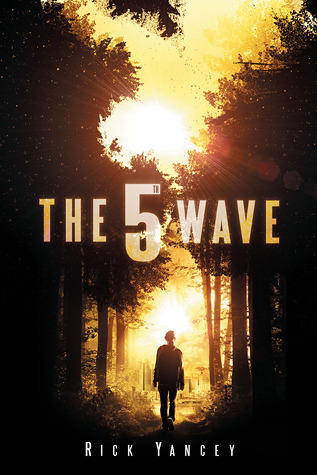 The 5th Wave
The 5th Wave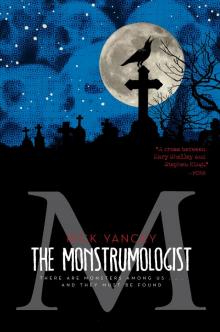 The Monstrumologist
The Monstrumologist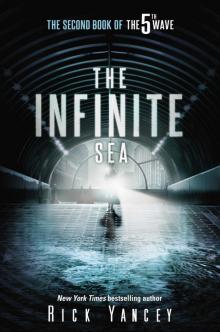 The Infinite Sea
The Infinite Sea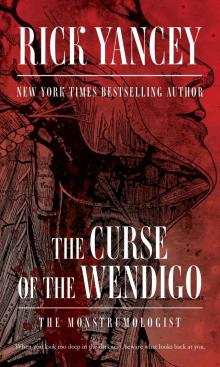 The Curse of the Wendigo
The Curse of the Wendigo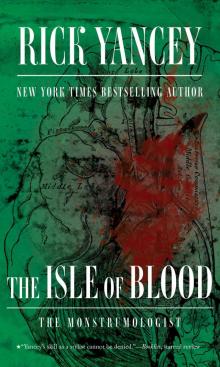 The Isle of Blood
The Isle of Blood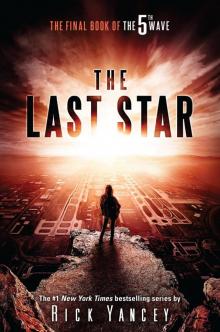 The Last Star
The Last Star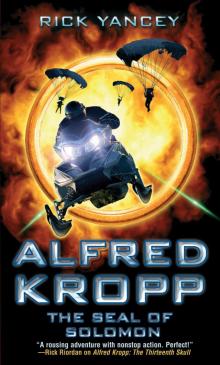 The Seal of Solomon
The Seal of Solomon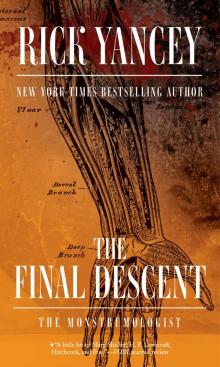 The Final Descent
The Final Descent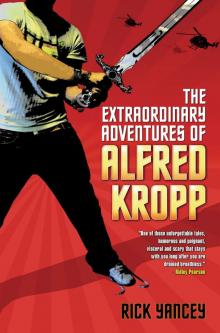 The Extraordinary Adventures of Alfred Kropp
The Extraordinary Adventures of Alfred Kropp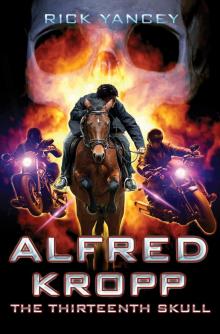 The Thirteenth Skull
The Thirteenth Skull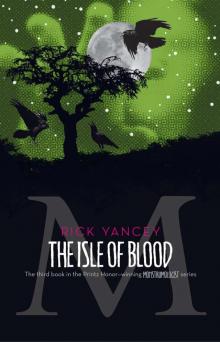 The Isle of Blood (Monstrumologist)
The Isle of Blood (Monstrumologist)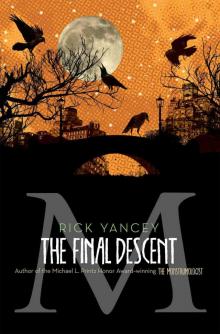 The Final Descent (The Monstrumologist)
The Final Descent (The Monstrumologist)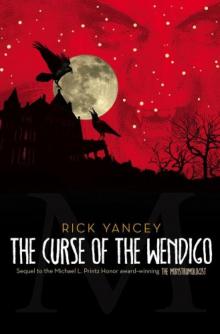 The Curse of the Wendigo (The Monstrumologist, Book 2)
The Curse of the Wendigo (The Monstrumologist, Book 2)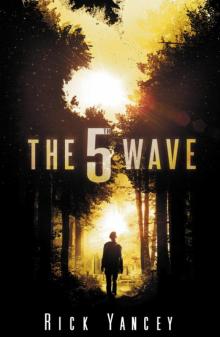 The 5th Wave t5w-1
The 5th Wave t5w-1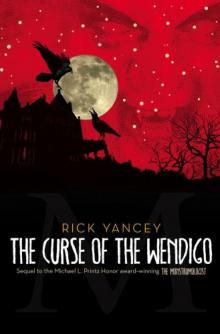 The Curse of the Wendigo (The Monstrumologist, Book 2) m-2
The Curse of the Wendigo (The Monstrumologist, Book 2) m-2